Four fantastic flashchats bring to life learnings from Linda Sue Park’s bestselling novel, A Long Walk to Water
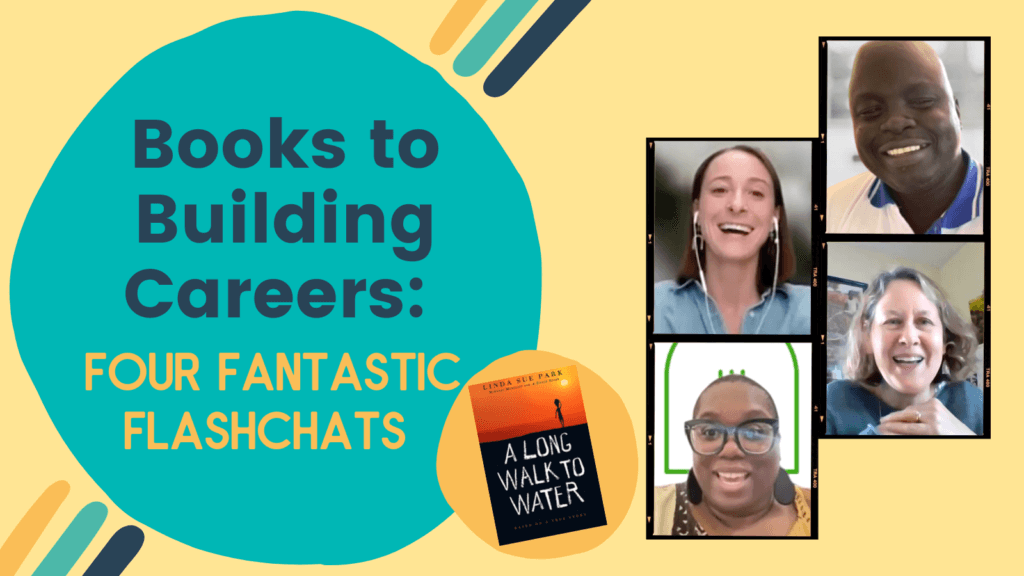
DreamEducator Kimberly Krauter and her 7th-grade English Language Arts students at Hiawatha Middle School recently read the true story of South Sudanese Lost Boy, Salva Dut, in Linda Sue Park’s bestselling novel, A Long Walk to Water. Salva’s incredibly arduous journey and deeply moving story inspired a thirst in students to learn more about the real-world relevance of the novel’s themes, including international development and food and water security. DreamWakers connected the content of the book to real-world careers by hosting four inspiring flashchats with Ms. Krauter’s students, bringing Salva Dut’s story to life. Most notably, one of our DreamSpeakers, Sebastian Maroundit is a South Sudanese Lost Boy himself and nonprofit co-founder! On top of that, another DreamSpeaker, Lynn Malooly, is the Executive Director of Salva Dut’s very own foundation. Check out some highlights of these fantastic flashchats below.
#1: Sebastian Maroundit
Sebastian Maroundit is a co-founder of Building Minds in South Sudan (BMISS) and former Sudanese Lost Boy.
Born in the rural village of Mayen-Abun in Twic State, South Sudan, Sebastian Maroundit was not yet ten years old when war came to his village and separated him and his cousin, Mathon Noi, from their families. Watch Sebastian tell the story of his incredible journey and share about the impactful work of his foundation below!
BMISS is dedicated to improving literacy, economic opportunity, and gender equality in Sudan. They serve local communities by constructing schools and creating programs that lift up African children and provide incentives for small businesses. As a result of the foundation’s support, they have built three schools: a primary school for boys and girls, a primary school for girls, and a high school.
One student asked, “Why do you care so much about girls’ education?” Sebastian happily replied, “The reason is that I lost my five-year-old sister, who was killed in the war the day I fled my village. The second reason is, my mom never had access to schools. In that culture back in the day, women were not allowed to go to schools…
By educating girls, we’re educating the country and their children will be able to go to school. That’s what inspired me to educate girls. Girls will be mothers, and mothers will educate their children.”
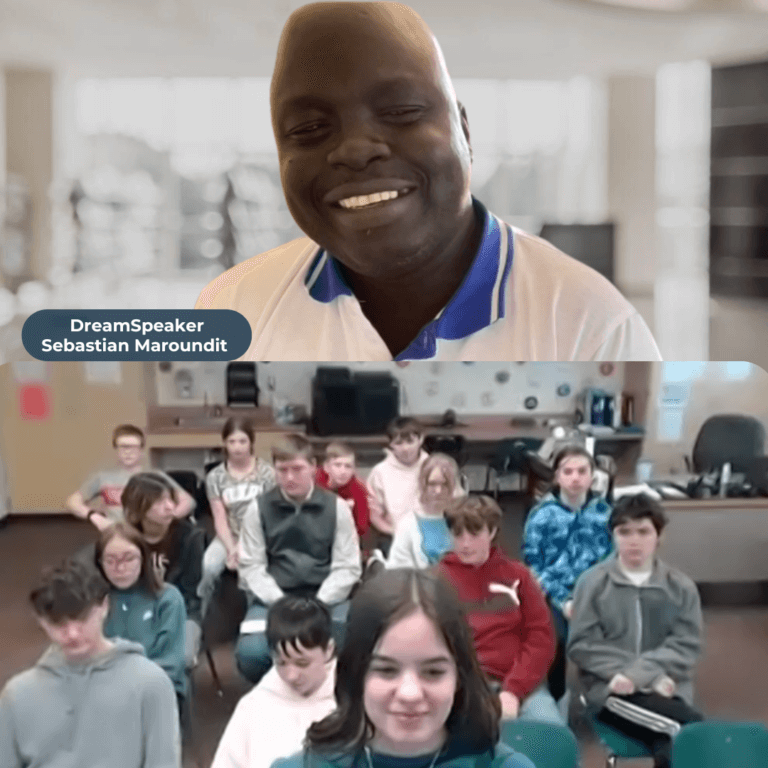
#2: Dr. Wanida Lewis
Dr. Wanida Lewis is a food scientist, entrepreneur, and agriculture and gender policy consultant with fifteen years of experience leading programs, partnerships, and economic initiatives throughout the African continent to promote women’s equal access to resources. Dr. Lewis is the CEO and founder of Crescendo Foods, Ghana’s first food coworking space in Accra, the nation’s capital city, which provides valuable mentorship to food businesses, flexible access to a commercial kitchen, and event space celebrating food culture.
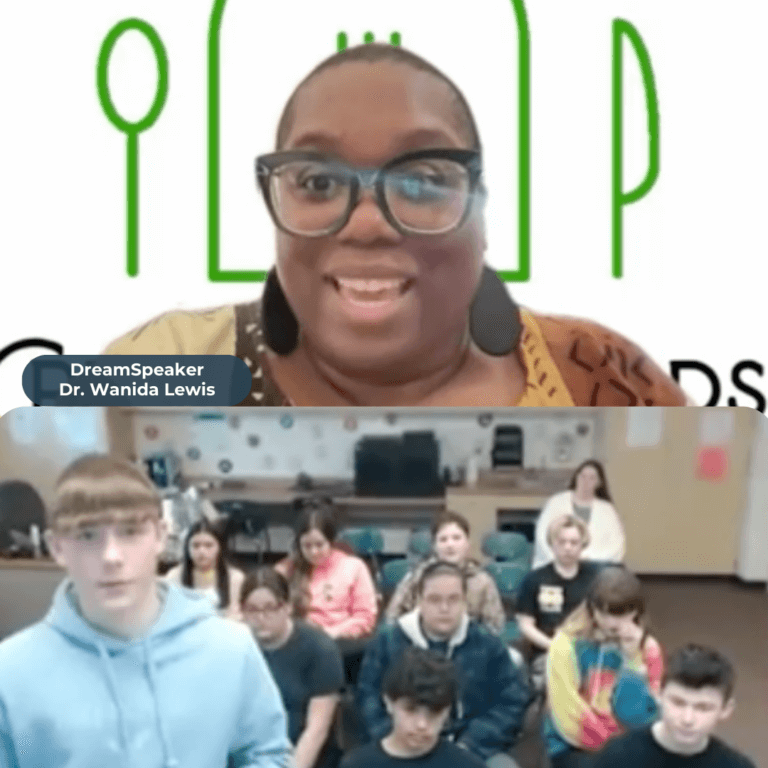
Crescendo Foods‘ mission is to create a Pan-African ecosystem connecting food businesses, food founders, and the people in between by providing food businesses with necessary equipment, a collaborative community, and access to resources that will help to support their economic success.
When a student asked “How did you build your career?” Dr. Lewis replied, “I was open-minded! The biggest thing that helped me build my career was having support. My support was my family, my friends, others from school. I also took risks.
I would say that it’s hard to be in a space where you’re the only one – either the only woman, the only man, the only person of color, the only indigenous person, the only fill-in-the-blank. So, with overcoming those challenges, I made sure I had the resources or tried to have the resources to help me get through it.”
#3: Lynn Malooly
Lynn Malooly is the Executive Director of Water for South Sudan, Inc. (WFSS), an organization founded by Salva Dut, whose story is told in the bestseller A Long Walk to Water. WFSS aims to deliver sustainable quality-of-life services to and with the people of South Sudan by efficiently providing access to clean, safe water, and improving hygiene and sanitation practices. A graduate of the University of Notre Dame, Lynn Malooly joined WFSS in 2010 as their first U.S.-based employee.
As of August 2022, WFSS had drilled 571 new water wells, rehabbed 321 existing wells, and conducted 678 hygiene trainings for local communities.
One 7th-grader asked “What made you want to work for Water for South Sudan?” Ms. Malooly answered, “I was home for eighteen years with my kids homeschooling them. I loved being home with my kids, but every now and then I would go through periods of self-doubt. I would think, What am I doing with my life? Will I ever work again? Will I ever do anything meaningful?
I started to think about and meditate on what I wanted in a job because I didn’t have a very specific career to go back to. One day my old boss called me, asking if I was looking for part-time work, so one of the ways I got this job was simply by staying in touch with my old boss! Knowing people doesn’t always get you a job, but it often can get you an interview, or can allow you to find out about opportunities.
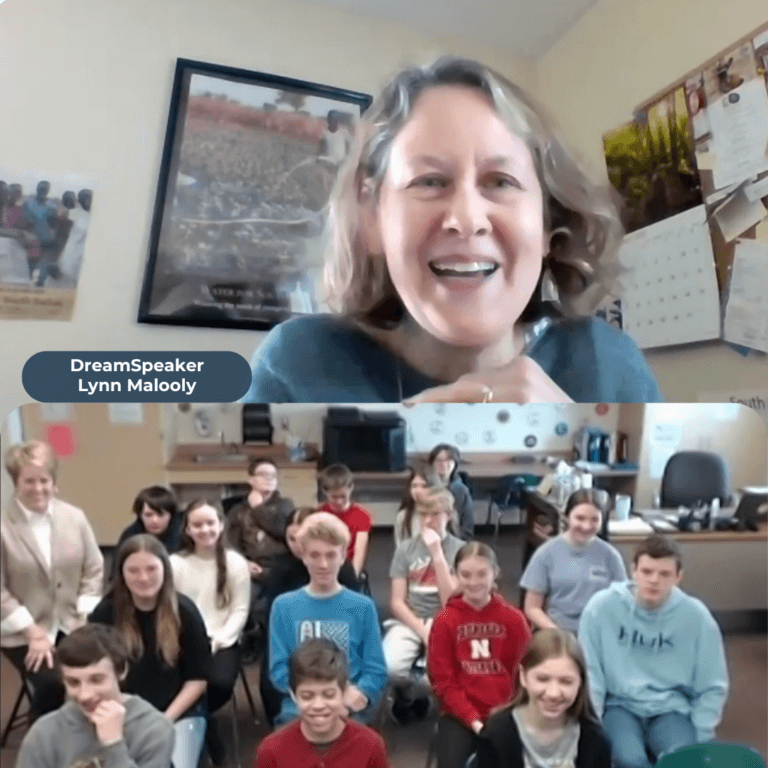
#4: Kristin Lambert
Kristin Lambert is a Technical Director on Mercy Corps’ Agriculture Team, working with programs that operate in areas with high levels of food insecurity, primarily in Sub-Saharan Africa. Mercy Corps is a global team of humanitarians who work with communities experiencing crisis, disaster, poverty, and climate change. The organization delivers aid to meet urgent needs, and co-develops long-term solutions for lasting change with local community leaders. Together, they implement activities that support communities to enhance the way they grow food and manage natural resources.
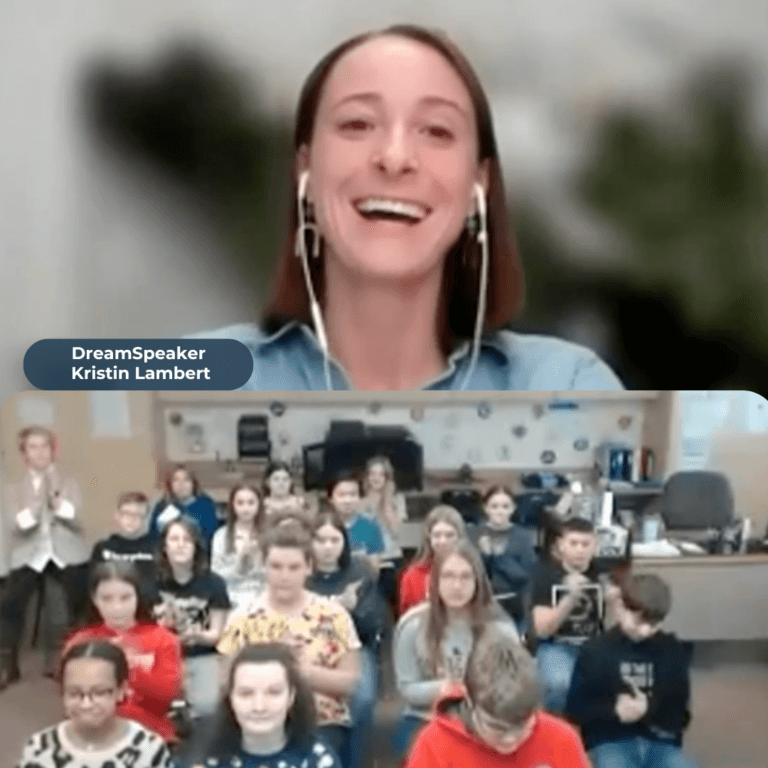
Kristin Lambert is a graduate from the University of Virginia and Yale University’s environmental school. She has spent over fourteen years traveling, living, and working across the globe, from the coast of West Africa to the hills of Nepal and the forests of Rwanda.
One DreamStudent wondered, “What kind of problems do you face on a day-to-day basis?” Kristin happily shared an example: “A basic challenge we face is the nuts and bolts of communication. Sometimes there’s no wifi connection, so on a very basic level it can be hard to communicate with our teams.
On a technical level, one of the problems we face is understanding whether or not the activities we put into place are working as conditions change. Right now, we’re working with a team in Zimbabwe, and we’re supporting hundreds of community members and their agricultural activities. They’re experiencing a lot of flooding in this region, so we’re brainstorming how to manage the water and what techniques we can use to shift the water away from areas we don’t want it, and use it productively.”
Through these career conversations, Ms. Krauter’s 7th-graders gained a better understanding of the relevance of A Long Walk to Water in the real world and saw their learnings come to life, getting a first-hand account from a Sudanese Lost Boy and gaining exposure to careers in international development, food and water security, and sustainability.
DreamWakers’ mission is to help students see what they can be, inspiring the next generation of leaders, entrepreneurs, and professionals in all industries. Representation matters, and we connect students across the country with career professionals who look like them, so that the youth of America can truly see themselves in the faces of their role models year-round. These insights are just snippets of the many impactful conversations that take place every day during flashchats.
Follow along with the latest DreamWakers updates via Instagram, Twitter, and Facebook.
Are you an educator looking to bring your lessons to life, or expose your students to new and exciting career paths through conversations with career professionals? Sign up as a DreamEducator with DreamWakers today!


